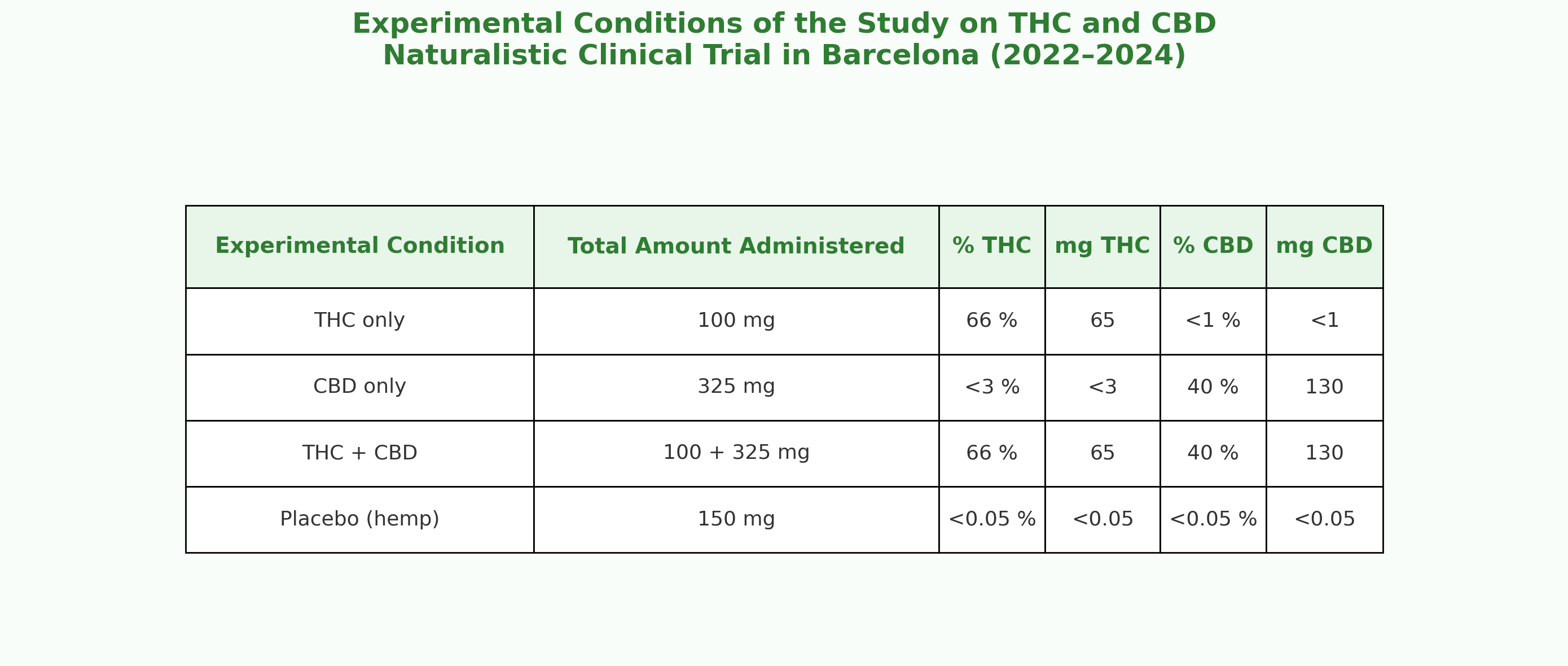José Carlos Bouso | 30 April 2025
How does the consumption of cannabinoids affect our ability to understand and relate to others? Is our emotional perception altered? Or do our social skills remain intact? What differences exist between THC and CBD? These are the questions that an innovative study conducted by ICEERS between 2022 and 2024 has sought to answer. Based on a controlled trial in a natural context, the research was conducted with regular cannabis users and offers a new perspective on the real effects of this substance on social cognition.
A novel approach
Alberto Sainz-Cort’s doctoral thesis, entitled “Psychopharmacology of cannabinoids: Subjective, psychotomimetic and social cognition effects of tetrahydrocannabinol and cannabidiol,” defended at the Universitat Oberta de Catalunya (UOC) in 2025, under the direction of Dr. José Carlos Bouso Saiz (ICEERS) and Dr. Elena Muñoz Marrón (UOC), provides an innovative approach in psychopharmacological research, bringing laboratory methods to real life.
The study was conducted at the Strain Hunters Cannabis Social Club (SHC) in Barcelona, allowing participants to consume standardized cannabis extracts in settings where they would normally do so. This double-blind, crossover, placebo-controlled design integrates clinical rigor with ecological validity, respecting the set (internal state) and setting (external environment) factors that so strongly influence the psychoactive experience.
Before addressing the acute effects of THC and CBD, the team dedicated a first study to translate and validate into Spanish key psychometric instruments to measure subjective effects (Visual Analogue Scales, CEQ-mv), psychotomimetic symptoms (PSI, ARCI-18) and social cognition (Multifaceted Empathy Test, Reading the Mind in the Eyes Test, Yoni Task). The validation of these instruments in the Spanish-speaking population represents a crucial contribution to scientific accessibility in this field.
Design and administration protocols
The trial involved 18 regular cannabis users, who in different sessions received vaporizations of high THC, high CBD, THC+CBD combination, and hemp placebo extracts, under the following conditions:

Each condition was administered in separate sessions and in randomized order to ensure the validity of the results.
Main results
THC showed clear subjective effects, such as euphoria, perceptual disturbances and cognitive disorganization, and significantly increased psychotomimetic symptoms, as anticipated by the hypothesis. In contrast, CBD did not elicit relevant subjective effects or increase psychotic symptoms, but it did partially counteract some effects of THC, especially cognitive disorganization.
In the area of social cognition, the findings were particularly relevant. THC decreased cognitive empathy, reducing participants’ ability to understand the emotions of others. In contrast, CBD not only did not impair this ability, but improved cognitive empathy relative to placebo. It also favored theory of mind, i.e., the ability to infer other people’s thoughts and mental states. The THC+CBD combination reduced THC-associated psychotomimetic symptoms, although it failed to completely reverse the impairment in empathy.
These results reinforce the hypothesis that CBD may harbor an as yet underexplored therapeutic potential in the area of social cognition, in contrast to THC, whose effects partly resemble the deficits observed in disorders such as schizophrenia.
Cannabinoids and their clinical implications
The thesis highlights that many of the social deficits experimentally induced by THC mimic patterns observed in patients with schizophrenia, which reinforces the interest in the endocannabinoid system as a central axis in psychopathology. Likewise, the promising effects of CBD open the door to further research in autism spectrum disorders, post-traumatic stress disorder, and other conditions where social cognition is impaired.
This approach invites to consider future clinical trials with CBD as a possible therapeutic intervention in vulnerable populations, pointing to a new line of treatments based on non-psychoactive cannabinoids.
With his thesis, Alberto Sainz Cort not only expands knowledge on the effects of THC and CBD on social cognition, but also promotes a new way of understanding psychopharmacological research: one that is increasingly closer to the real conditions of consumption.
In a context where the debate on cannabis regulation is intensifying, research such as this offers an opportunity to build innovative public policies based on the best available scientific evidence and a more accurate understanding of the phenomenon of consumption. These findings expand academic knowledge and, at the same time, open avenues to design social and health interventions that are more in line with reality.
To learn more about the scientific results of this research with cannabinoids, please refer to the articles published in International Clinical Psychopharmacology, Journal of Clinical Psychopharmacology and Cannabis and Cannabinoid Research:
Categories:
Noticias
, NEWS
, Cannabis
Tags:
cannabis
, cannabis
, scientific research
, CBD
, medical cannabis
, THC
, social cognition
, cannabis associations

